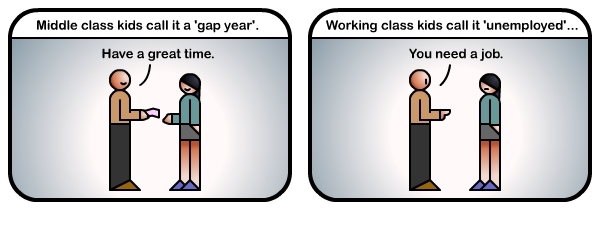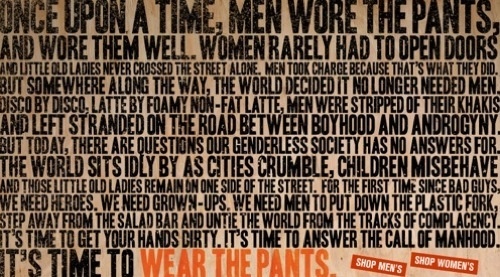You might have noticed that there are poor, rich, and middle class neighborhoods in just about every town. Sociologists call this residential segregation. Residential segregation is a problem, in part, because it can create a situation in which some neighborhoods have more social and other services than others. Sociologists have found, for example, that richer neighborhoods tend to have more grocery stores, better sidewalks, and more fire protection.
So, when Jessica Sherwood, of Sociologists for Women in Society, sent us a map showing the density of playgrounds in New York City, I immediately thought to correlate it with average income.
Playground map (darker pink = more playgrounds):
Map of median household income (yellow = more income, blue = less):

UPDATE: Awesomely, Reader Mark Root-Wiley overlaid the two maps and sent it along! Here it is:

It looks to me that playground density is highest in the poorest neighborhoods. A very unusual finding!
So, what factors do you think might account for the disproportionate number of playgrounds in low income areas? Speculate away!
Lisa Wade, PhD is an Associate Professor at Tulane University. She is the author of American Hookup, a book about college sexual culture; a textbook about gender; and a forthcoming introductory text: Terrible Magnificent Sociology. You can follow her on Twitter and Instagram.




